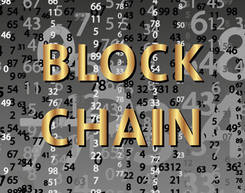About 100 representatives of the energy industry and pioneers of the blockchain technology have been present at the first Blockchain Day for the energy sector. The discussions and presentations reflected the dynamic developments of this new technology, even though many unresolved issues remain.

The blockchain is a decentralized register, which stores all transactions running on the blockchain. In contrast to conventional databases, the blockchain and its content is not located on a central server and consequently accessible not only for one or several selected actors, but various copies store the blockchain in a decentralized manner. Each party that participates in the blockchain has access to the most recent status of the transactions, as each participant’s computer or server features on copy of the blockchain. The administration of this public database consequently takes places decentralized via all connected PCs.
The effect this nascent technology may have on the energy sector cannot be foreseen in its completeness. In his welcoming speech Claus Wattendrup of Vattenfall however made clear that such a technology might replace many current business models as well as companies of the energy sector.
Karl-Heinz Remmers of Solarpraxis Neue Energiewelt AG sees great potential for the blockchain technology. Foremost, the decentral character of blockchain resonantes well with decentralized renewable energies, he explained.
In its essence blockchain is based on three concepts, as Dr. Shermin Voshmgir from BlockchainHub Berlin made clear. These three are cryptography, necessary for highest data security, the rules of the game, which incentivize the “right” execution of a protocol, as well as the peer-to-peer network, which embodies the centralized approach of blockchain.
The blockchain does not only serve to verify transactions, but, and this might be the most intriguing part for the energy industry, the drafting and execution of so called “Smart Contracts” is possible as well. The contents and set of rules of such “Smart Contracts” are defined from the start and are coded into protocols, i.e. transcribed into programming language. The execution, transaction of payments, data collection and the verification of the transaction runs automatically. This allows for an unprecedented level of transparency.
According to Prof. Roman Beck from IT-University Kopenhagen this automated process can reduce transaction costs to 5 percent of the current level. Saving potentials are high especially for firm-internal processes.
GridSingularity, a blockchain start-up, already envisions more daring applications of the technology fot businesses in the energy sector. Amongst others, the connection of power generating units with blockchain technologies would allow for real-time asset and technical due diligence evaluations, described CEO Ewald Hesse. Data collected in these processes might then be used automatically for energy trading via previously defined “Smart Contracts” and thus contribute to the optimization of power plant portfolios.
During the event as well as in the podium discussion at the end of the Blockchain Day, the notion developed that business models based on blockchain technology or for that matter the business model developers might become obsolete when using this technology.
Unresolved issues and open questions about blockchain technology still exist. The technology is still in its infancy. The connection and linkage to sectors with real assets only took place on a very rudimentary level. Furthermore standardization for data formatting has to occur in order for transactions via “Smart Contracts” to be successful. Changing the rules of the game laid down in a “Smart Contract” is very difficult or almost impossible. This represents a major drawback for the adjustment to new market conditions. Nevertheless, blockchain technology will remain an interesting topic.



